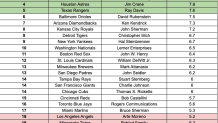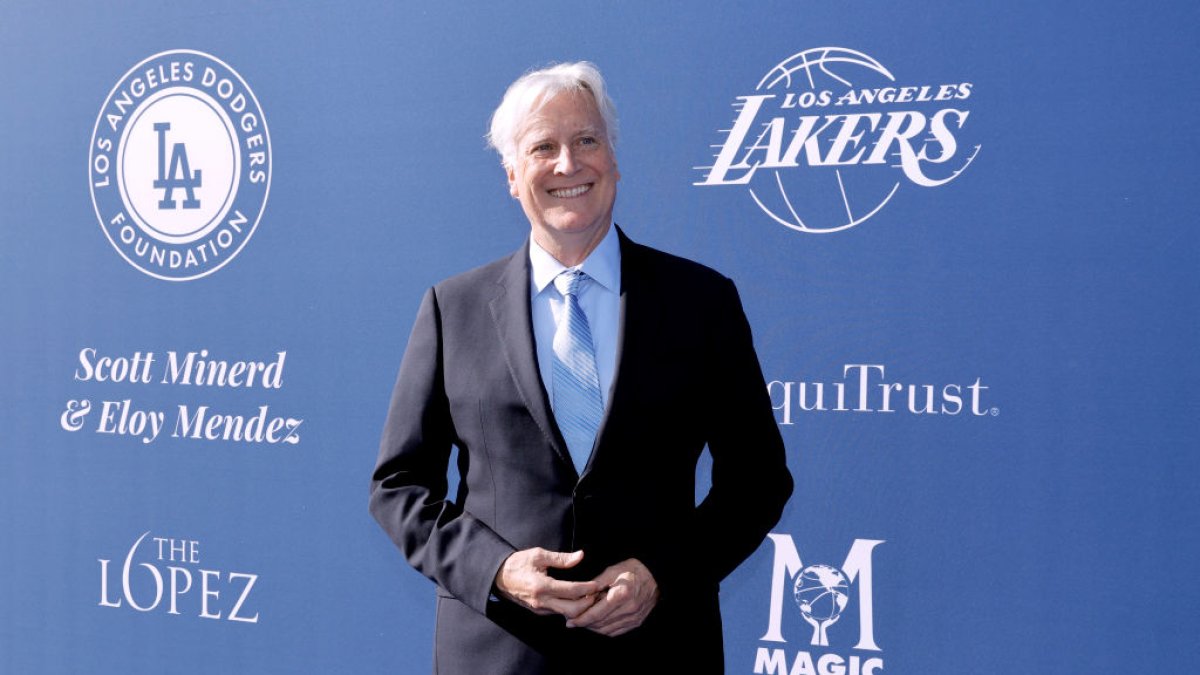In a city that demands excellence, Mark Walter is quietly becoming its favorite architect.
Not the loudest voice in the room. Not the flashiest suit in the owner’s box. But Walter, chairman of the Los Angeles Dodgers and soon-to-be majority owner of the Lakers, just earned something far more valuable than a championship ring—he earned the respect, trust, and admiration of baseball fans across the country.
For the second straight year, Walter has been named the #1 most liked owner in Major League Baseball, according to a nationwide fan survey conducted by Casino.ca. In polling more than 4,000 MLB fans across all 30 teams, the study asked for honest feedback about each team’s owner using a 1–10 scale. The focus? Spending habits, long-term vision, decision-making, and overall leadership.
Walter’s score? An elite 8.6 out of 10—head and shoulders above the league-wide average of 6.0, and lightyears ahead of crosstown counterpart Arte Moreno, whose approval rating with Angels fans sits at a rocky 5.2.

In a league where owners are often painted as villains—cold, out-of-touch billionaires far removed from the pulse of their fanbase—Walter stands as a rare outlier. Where John Fisher of the Oakland A’s draws boos and boycotts, Walter draws a quiet nod of gratitude from Dodgers fans who know just how good they’ve got it.
He’s not just a businessman. He’s a steward.
When asked about their confidence in Walter’s long-term vision, Dodgers fans gave him a near-perfect 9 out of 10. That’s no fluke. Over the last decade, the Dodgers have become the gold standard of sustainable excellence in baseball. Elite farm system. Smart free-agent splashes. Savvy trades. And yes, a payroll that consistently reflects a willingness to win.
Walter doesn’t throw money at problems. He invests—wisely.
According to the survey, 71% of Dodgers fans believe Walter “spends wisely”, a nod to the balance he’s struck between big-name superstars like Shohei Ohtani and the homegrown core that makes up the soul of this team.
You don’t build an empire overnight. But under Walter’s guidance, the Dodgers have become something close to it—a machine that not only wins, but endures.
Ask around Los Angeles and you won’t find too many “Mark Walter sightings” at local sports bars or on talk radio. He’s not out there chasing headlines. But his fingerprints are everywhere—from the $300 million player payroll, to the modern renovations at the Ravine, and the state-of-the-art player development facilities in Arizona.
It’s the type of leadership you feel rather than hear. One that empowers baseball minds like Andrew Friedman and Dave Roberts to do what they do best. One that trusts the process but isn’t afraid to swing big—like acquiring Mookie Betts or re-signing Ohtani to the richest deal in baseball history.
And that success has shown on the field as well. After winning the World Series in 2020, the Dodgers followed it up with another title four years later in 2024 over the New York Yankees.
Walter isn’t stopping at the warning track. He recently agreed to purchase the majority stake in the Los Angeles Lakers, in a blockbuster deal that values the franchise at an eye-popping $10 billion.
Let that sink in.
The same man who brought consistency, class, and championships to Dodger Stadium is now poised to bring his brand of measured brilliance to one of the NBA’s most iconic teams.
It’s not just a business move—it’s a citywide power shift. For the first time, Los Angeles’ two crown jewel franchises may soon fall under the same visionary umbrella.
And if you ask Dodgers fans, Lakers fans should be celebrating, just keep your hands off Ohtani!
Professional sports have always been about more than wins and losses. They’re about identity. Legacy. Trust.
The owner-fan relationship is often fractured, fragile, and full of friction. But in Walter, Dodger fans see someone who not only gets it—but lives it.
They see a man willing to spend—but not recklessly. Willing to win—but not at the cost of the future. Willing to listen—even when the pressure is loudest.
That’s why Mark Walter is the most liked owner in baseball, and why his approval rating isn’t just a number—it’s a reflection of how modern ownership should be done.
